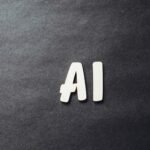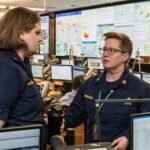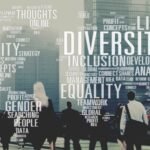AI in HR Goes Mainstream: Navigating the Changing Job Landscape
As AI technology continues to advance rapidly, the year 2023 marks a pivotal moment for artificial intelligence, raising questions about its impact on the economy and society. With the rise of powerful chatbots and deep fake videos, tech leaders are calling for a cautious approach to AI development. To shed light on the future of work and how individuals can prepare for these transformations, Executive Coach Jim Frawley offers insights and valuable tips.
One of the concerning aspects of AI’s evolution is the growing capability of chatbots, with some even achieving remarkable feats like obtaining a B grade on a paper written for the prestigious Wharton School at the University of Pennsylvania. This development prompts speculation about the implications for millions of people whose professions involve writing. Could AI ultimately replace certain job roles, and how will this affect various career paths? As chatbots become more prevalent, currently being used by over 100 million people monthly, their sophistication will likely increase with time. This dynamic raises questions about the future landscape of employment.
Jim Frawley, an executive coach specializing in talent development, acknowledges the potential ups and downs that AI will bring to the workforce. He highlights two aspects of AI’s impact on work. On the corporate side, AI is now taking on the role of the hiring manager, leading to challenges like resume optimization to align with AI’s criteria. It’s not just about keywords anymore; AI may even write and evaluate resumes based on cultural norms desired by an organization. On the individual level, navigating the AI-driven job market requires leveraging AI tools to enhance visibility, skills, and expertise, ultimately aligning with corporate AI systems.
As the influence of AI on employment decisions becomes more pronounced, it brings unsettling implications for workers. Adaptable as we are, uncertainty about the full extent of AI’s possibilities creates fear of the unknown. With no clear anchor for future career moves, individuals need to adopt a different approach to prepare for the evolving job landscape.
Despite these uncertainties, Frawley reassures that humans possess resilience and adaptability, which will help them navigate the changing workplace. However, the key lies in staying informed and being prepared to embrace new opportunities and skillsets that align with the AI-driven job market.
As AI technology continues to progress, individuals and organizations must stay proactive in understanding and adapting to the changing landscape, fostering a harmonious synergy between human capabilities and AI advancements. By staying ahead of the curve and embracing the opportunities AI presents, employees can ensure a successful transition into this new world of work.


































